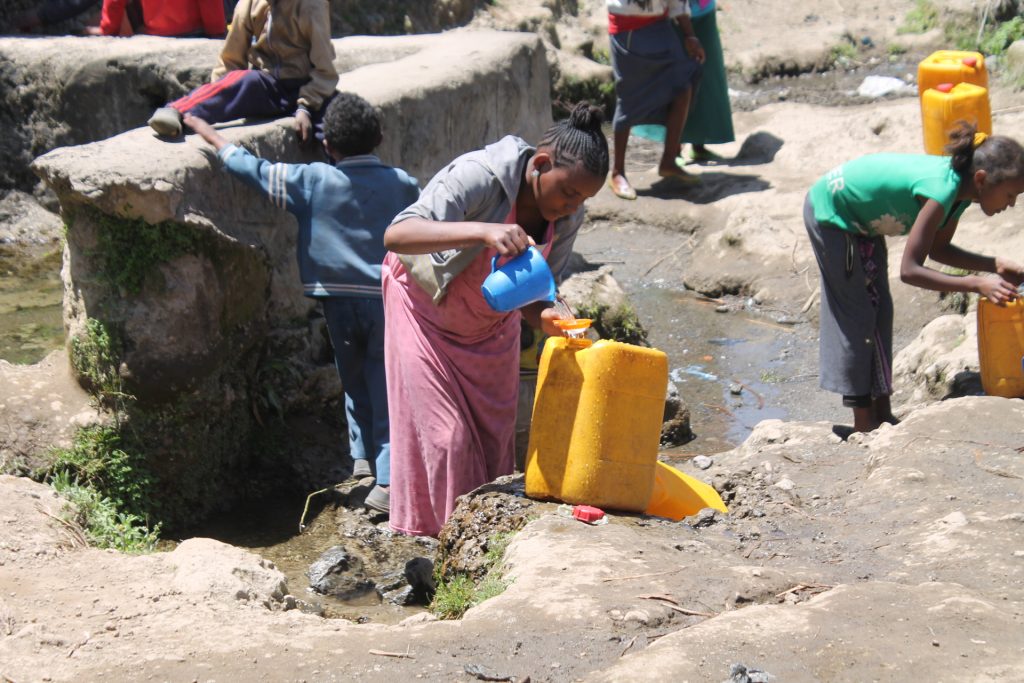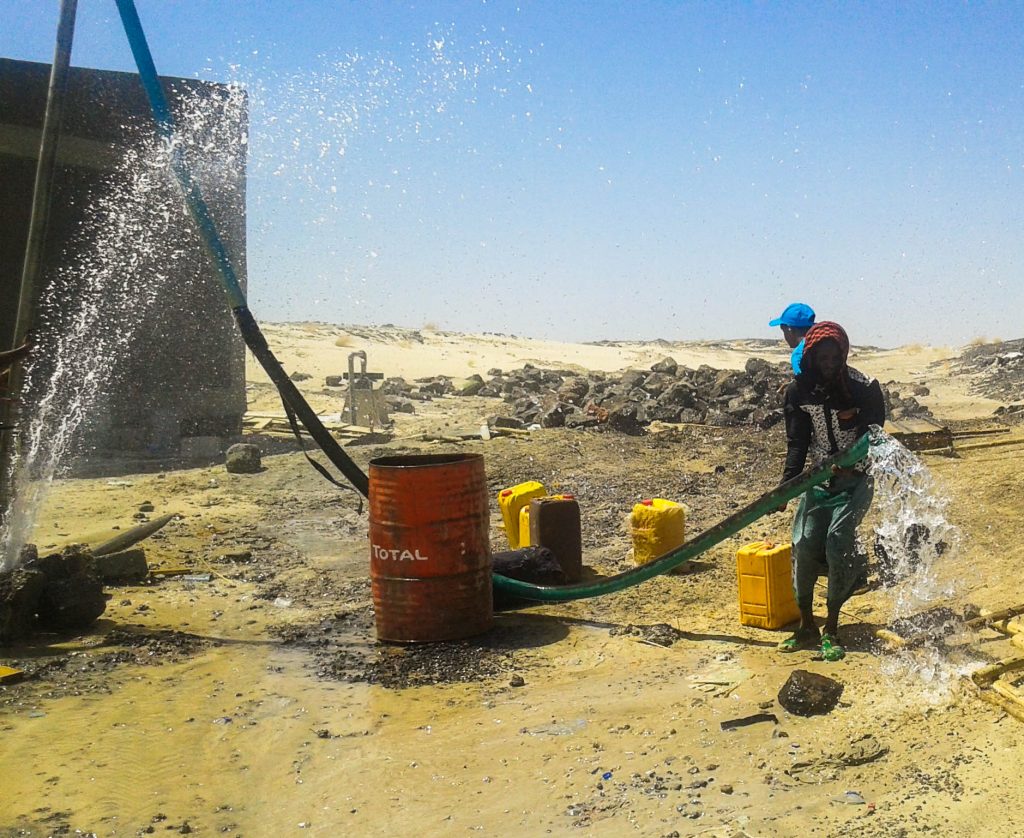Access to water and sanitation facilities plays a key role in addressing sustainable development, improvement of health conditions and eradication of poverty and hunger.
Clean water supply is in fact a top priority in the Ethiopian Growth and Transformation Plan (GTP II), a five-year programme 2016 – 2020 provides the national strategic framework to achieve the universal access to water supply and sanitation . The Plan aims to achieve new water access and supply standards, in both, rural (from 56% to 85%) and urban (from 85% to 100%) areas by 2020.
The GTP II aligns with the 2030 Agenda for Sustainable Development and it sets WaSH goals and indicators in line with the SDG goals 6.1 and 6.2.
Our initiatives
WaSH represents one of the main sectors of the intervention of the Italian Agency for Development Cooperation in Ethiopia.
AICS supports Ethiopian Federal, regional and local authorities in providing rural and urban communities with better access to water and sanitation facilities, improving hygiene conditions and enabling sustainable socio-economic development. Particular focus is given to women , children and the communities’most vulnerable members with no or limited access to improved WaSH facilities.
Particular attention is also given to istitutional capacity building and skills enhancment and infrastructures’ management at local communities level.
AICS is involved in the WaSH at both urban and rural level. At the urban level AICS is improving water and sanitation services in more than 40 small and medium towns all over the country.
AICS is also implementing emergency programmes in drought-prone areas of Ethiopia with a strong focus on WaSH , with a particular focus on resilience strengthening of El Nino affected communities.
Furthermore, Italy grants its support to several Italian NGOs present in the country and active in the WaSH sector.
Support to the WaSH sector in Urban Areas
“Support to WaSH sector in Urban Areas” is a 81.4 million Euros multilateral programme co-financed by AICS (18.5 MEUR ) , the French Agency for Development AFD and the European Investment Bank EIB. The programme aims at improving access to safe drinking water in small and medium towns of Ethiopia (among 2.000 and 100.000 inhabitants). Through the soft loans components the programme finances water infrastructures construction, rehabilitation and extentions while with the grant component the programme ensures, capacity building activities at federal, regional and town water utilities level.
More than 40 Town Water and Sanitation Utilities (TWUs) are being funded through the Basket fund programme and more than 1,200,000 beneficiaries will be reached throughout Ethiopia.
Sanitation Services Improvement in Urban Areas
The “Sanitation Services Improvement in Urban Areas” programme aims at improving the sanitation infrastructures in selected medium towns country wide. The implementing partner will be the Water Resources Development Fund (WRDF), a semi-autonomous entity of MOWIE responsible for water and sanitation projects in urban areas. The Programme will have two components: the soft loan component will be used for sanitation infrastructure construction,rehabilitation and extension, while the grant component will be used for Institutional capacity building, at both federal and local level. The implementation modality will be through a revolving fund mechanism established by WRDF; loans will be given to the selected TWUs for financing sanitation infrastructures.
Integrated Project for improved access to basic services and valorization of the environmental resources in Wonchi
The project implemented by an International Italian NGO, aims at rehabilitating and extend the water scheme serving the Wonchi community, improve access to basic services and promote eco-tourism in the area valorizing its stunning environmental resources.
The project supports Wonchi community to sparkle tourism sector and related income generating activities. The rehabilitation of trekkings paths, hot pools and promotion of local artisanery is envisioned in the project activities.

